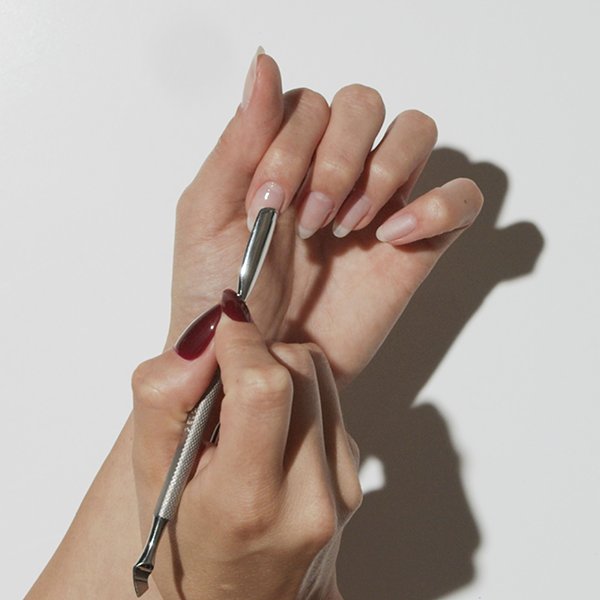
1. Push your Cuticles Back
Apply Cuticle Softener to the cuticles. This enzymatic solution softens the skin around the nails to facilitate a gentler and deeper clean. Push the cuticle back using the arched end of the Gel Removal Tool.
1 / 6






I’m so extra, she’s so extra, that’s so extra. At Gelcare we love it when things are a little over the top. A holographic glitter in a glassy base that gives your nails that extra something something.
Bis-HEMA Poly(Propylene Glycol)-53/IPDI Copolymer, Bis-HEA Poly(1,4-Butanediol)-9//IPDI Copolymer, Bis-HEMA Polyneopentyl Glycol Adipate/IPDI Copolymer, Polyethyleneglycol-200 Dimethacrylate, Isobornyl Methacrylate, Trimethylolpropane Trimethacrylate, 1-Hydroxycyclohexyl Phenylketone, Trimethylebenzoyl Diphenylphosphine Oxide, Silica, Cosmetic Pigments
Wear on its own or over a sheer colour.

![[puddle]](https://cdn.shopify.com/s/files/1/0743/0632/2725/files/Puddle_Coconut_Milk_WEB.jpg?v=1711045947&width=100&height=150&crop=center)
Our #1 top colour. Works for anyone, anytime, anyplace. This colour is a sheer, natural ivory designed to enhance the beauty of your natural nails.

![[puddle]](https://cdn.shopify.com/s/files/1/0743/0632/2725/files/Rosehip_Oil_WEB.jpg?v=1711047343&width=100&height=150&crop=center)
A subtle rosy tint with a glossy finish - this colour is pure perfection. Inspired by everyone’s favourite beauty oil. A sheer, warm, oily pink hue. A lipgloss look for your nails.

![[puddle]](https://cdn.shopify.com/s/files/1/0743/0632/2725/files/Puddle_LavenderBBCream_WEB.jpg?v=1711047322&width=100&height=150&crop=center)
The newest addition to our BB Cream range! This BB cream enhances the natural beauty of your nails with a milky, semi-translucent, soft purple hue. This shade is perfect for those looking for a natural, but noticeable, clean manicure.
Buildable depending on the desired look and intensity.
We're the brand that allows you to become your own nail artist. Redefining the industry with at-home use, we put education first and provide innovative colours comprised of best-in-class formulas.
Our mission is to elevate the at-home experiences, focusing on providing beauty lovers with a refined approach to nail care. Through Gelcare, our goal is to pass along our nail expertise to you.
Explore our step-by-step video tutorial below for visual guidance, or enhance your skillset by downloading our comprehensive manicure instruction booklet.
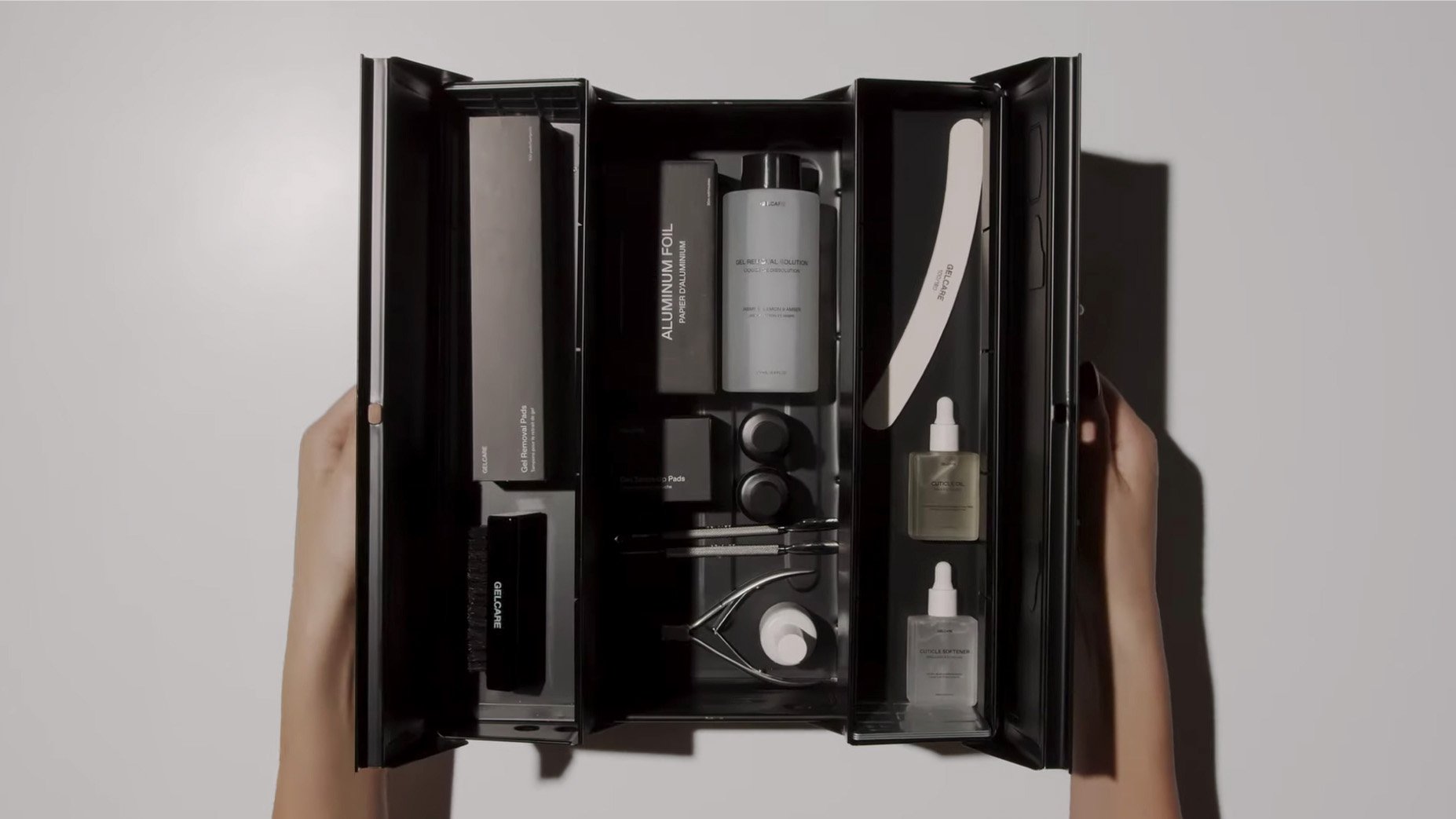

Apply Cuticle Softener to the cuticles. This enzymatic solution softens the skin around the nails to facilitate a gentler and deeper clean. Push the cuticle back using the arched end of the Gel Removal Tool.
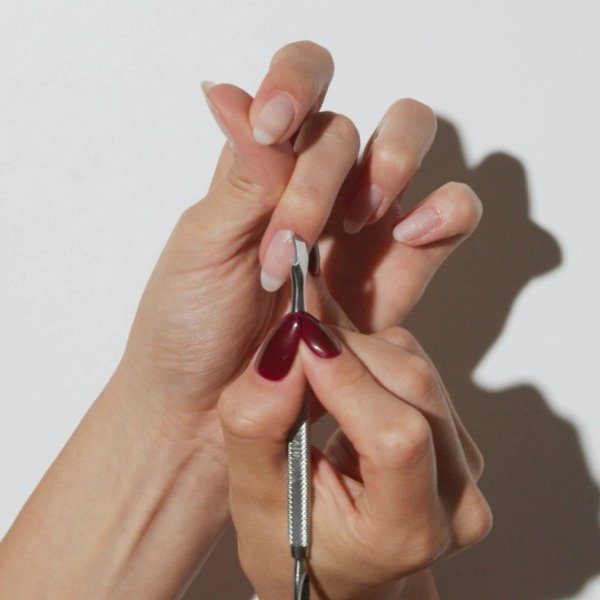
This step is unique to the Gelcare technique. With the bladed end of your Gel Removal Tool, use small circular motions to dislodge any dry skin stuck under the cuticles. If needed, add more Cuticle Softener to the nails to help loosen the skin further when executing this step.

Buffing not only smoothes the nail surface, it allows for better Base Coat adhesion by creating a subtle texture on the surface of the nails.
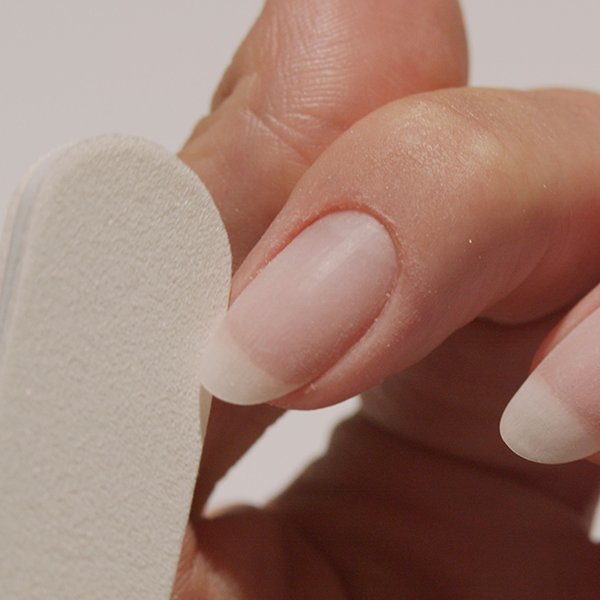
Using the more abrasive side (100) of the Curved Nail File, we want to file the excess skin on the sides of the nails first, which often causes the gel to lift. To do this, sit file in the crease of the lateral fold and file gently. Apply pressure towards the side of the nail and not downwards, which can cause paper cuts.
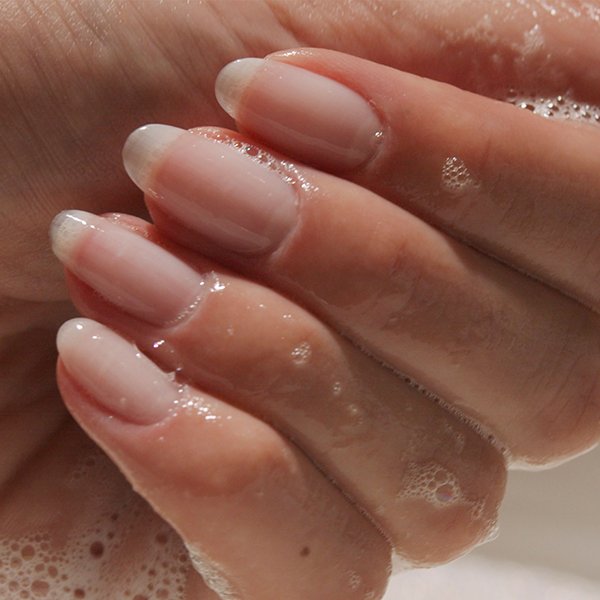
Wash your hands with soap and water. Using the Nail Scrubber Brush, scrub over and under your nails. Washing your hands also prepares the skin for the next step: cuticle trimming. When the skin is damp, the cuticles soften and become translucent, making them easier to trim.
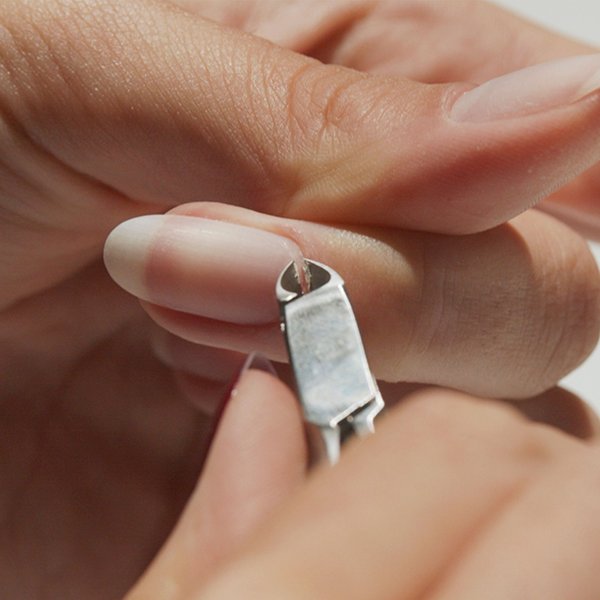
If necessary, trim off excess cuticles with the Cuticle Nipper. Make sure to always look between the blades so you know exactly where you are about to cut. For a clean trim, use the tip of the blades and gently cut the cuticle in one long piece. If cutting your cuticles scares you, skip this step!
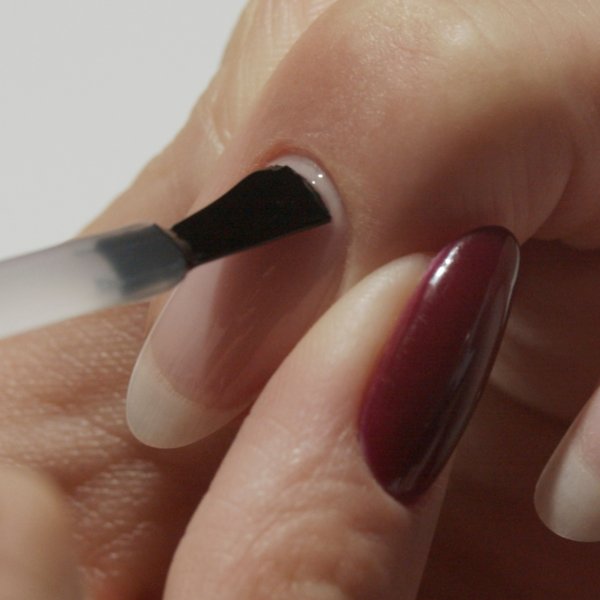
On one nail at a time, apply an even layer of Base Coat and immediately set your application by curing the gel under the LED Lamp for 5 seconds. If you do not set the gel, the application will not be as precise.
Once the base is applied and set on all nails, cure for 60 seconds under the LED Lamp. Ensure you slide your hand all the way into the lamp and that your middle finger reaches the embossed trackpad.
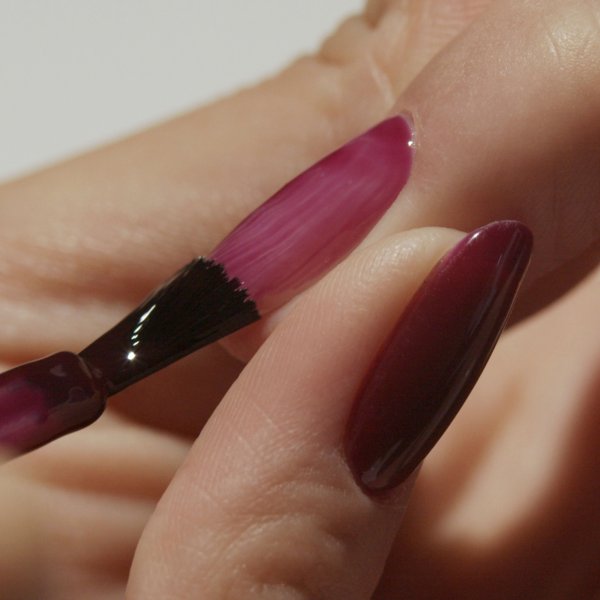
Apply 3 thin layers of colour. Cure each layer for 60 seconds under the LED Lamp.
Make sure to work with only a small amount of gel on your brush for a flawless application. Use the sides of the bottleneck to wipe off any excess gel. Start by applying the colour to the centre of the nail. Slide the gel up towards the cuticles without touching them. With long and fluid strokes, glide the gel down the sides of the nail to the tip.
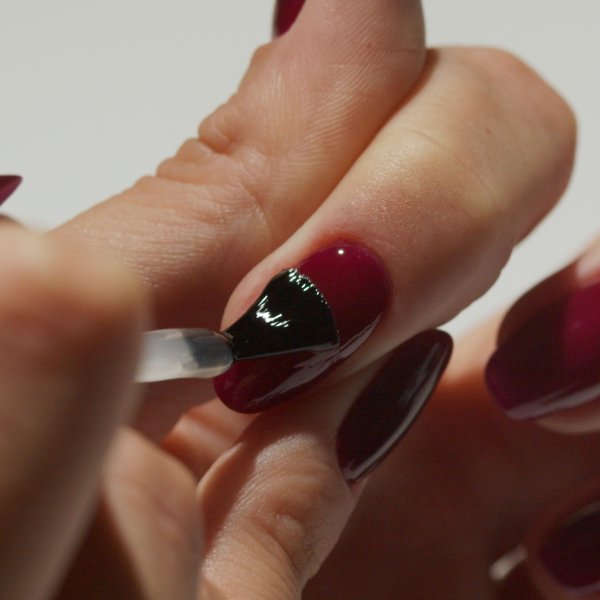
Apply a layer of Top Coat. Cure for 3 minutes under the LED Lamp.
By eliminating the 10 most concerning chemical ingredients traditionally found in gel, we offer you a cleaner nail care experience. Here's what our formula promises to leave out.
A common trigger for reactions in beauty products, emphasizing the need for safer contact with skin.
Often inhaled or absorbed through the skin, toluene can cause skin irritation, light-headedness, and nausea due to its impact on the nervous system.
Their estrogen-mimicking capabilities have sparked a significant discussion on their impact beyond simple preservation.
A plasticizer with connections to serious concerns, pushing us to find safer alternatives.
Known for its use in preservation, this chemical can provoke irritation and has been linked to severe concerns due to its carcinogenic properties.
Less toxic than its predecessor but not without its own risks, including potential allergenic effects.
Acts as a barrier on nails, blocking essential nutrients and leading to discoloration.
A known irritant to skin, eyes, and lungs, with potential for systemic toxicity.
Used to enhance flexibility in plastics, its potential as an endocrine disruptor has raised flags about its broader implications.
A fast-drying plasticizer, restricted in Europe due to concerns over antibiotic resistance.